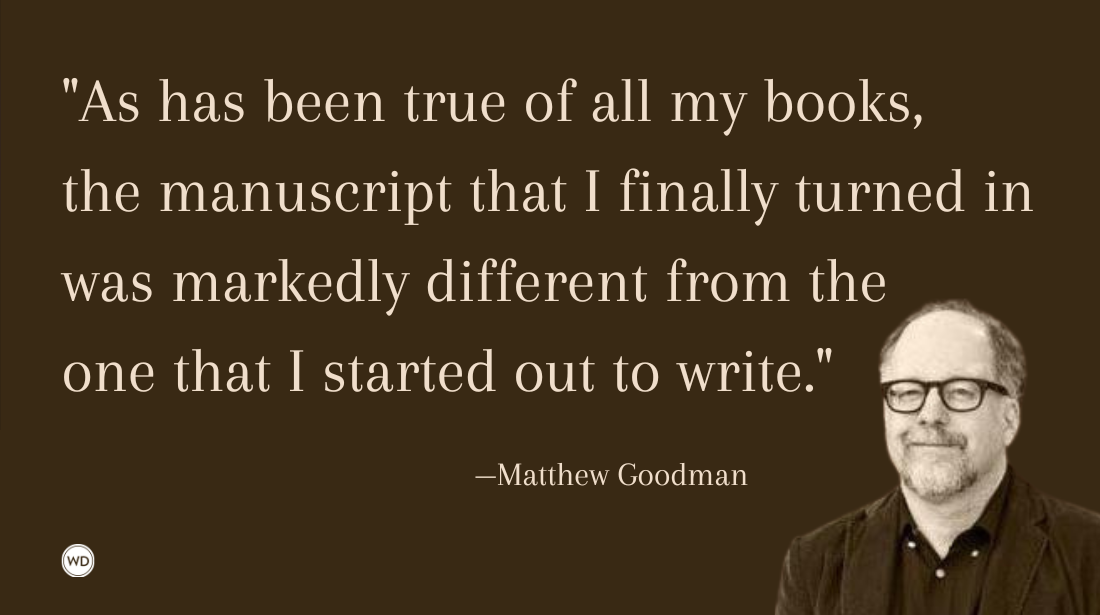Peak vs. Peek vs. Pique (Grammar Rules)
Learn when to use peak vs. peek vs. pique with Grammar Rules from the Writer’s Digest editors, including a few examples of correct usages.
Homophones are always good for getting me to doubt myself when I let myself overthink my writing. That's especially true when there are three possible homophones, as is the case of peak, peek, and pique!
One of these words means the top spot or maximum value. Another means to glance or take a look at something. And the final one is often used in reference to enticing someone's interest.
So let's take a quick look at the differences of peak, peek, and pique.
Peak vs. Peek vs. Pique
Peak can be used as a noun, verb, or adjective. However, it has a fairly consistent meaning in that peak means being at the top, highest, or most maximum level. For instance, as a former long distance runner, I would work to hit my peak (adjective) or fastest times at the end of my season, when all the most important races happened. Whenever I hit my best times, I'd say that's when I peaked (verb). Likewise, a mountain climber ascends to the peak (noun) of a mountain.
Meanwhile, peek is either a noun or verb. Both are related to looking with your eyes. As a noun, peek means taking a brief look. As a verb, peek means to take a brief look OR to peer through a crack, hole, or some other form of concealment (like your own fingers).
Finally, pique can be used as a noun or verb as well, though I most commonly hear it used as a verb. As a noun, pique can mean a feeling of wounded vanity, like a resentment. The verb means to excite by a provocation or challenge, though it can also mean to irritate or arouse anger in a person or group.
Make sense?
Here are a couple examples:
Correct: She hit her peak as a swimmer when she won the state title.
Incorrect: She hit her peek as a swimmer when she won the state title.
Incorrect: She hit her pique as a swimmer when she won the state title.
Correct: Could you peek in on the kids to make sure they're cleaning their rooms?
Incorrect: Could you peak in on the kids to make sure they're cleaning their rooms?
Incorrect: Could you pique in on the kids to make sure they're cleaning their rooms?
Correct: His constant use of y'all is sure to pique the grouchy grammarians.
Incorrect: His constant use of y'all is sure to peak the grouchy grammarians.
Incorrect: His constant use of y'all is sure to peek the grouchy grammarians.
Correct: She may pique his interest enough to take a peek at the city from the peak of the mountain.
So how do I keep these straight in my head? Well, I start with the "A" in peak, which itself looks a bit like a mountain peak or maximum height. Then, I look at the double "ee" in peek and think of eyes, which might take a brief look at something. That leaves only pique with an "i" that might pique my "interest" or "irritate" me (either way, I'm using the "i").
*****
No matter what type of writing you do, mastering the fundamentals of grammar and mechanics is an important first step to having a successful writing career.
Robert Lee Brewer is Senior Editor of Writer's Digest, which includes managing the content on WritersDigest.com and programming virtual conferences. He's the author of 40 Plot Twist Prompts for Writers: Writing Ideas for Bending Stories in New Directions, The Complete Guide of Poetic Forms: 100+ Poetic Form Definitions and Examples for Poets, Poem-a-Day: 365 Poetry Writing Prompts for a Year of Poeming, and more. Also, he's the editor of Writer's Market, Poet's Market, and Guide to Literary Agents. Follow him on Twitter @robertleebrewer.








